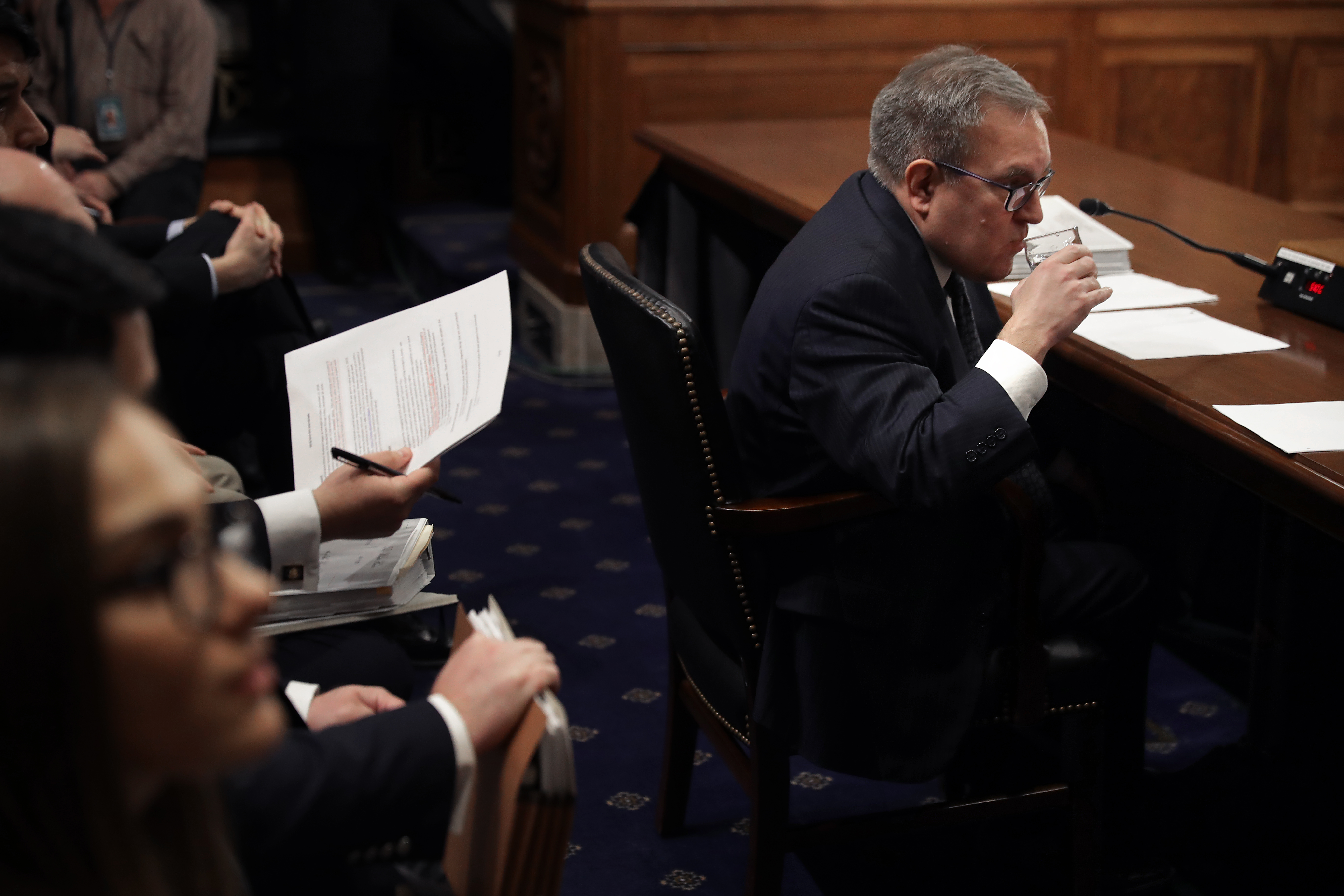The Trump Environmental Protection Agency (EPA) wants to raise the threshold for a chemical found in rocket fuel to triple the previous limit allowed in drinking water supplies. This is the first new drinking water rule introduced by the agency since the George W. Bush administration.
In the EPA’s latest move to weaken environmental and health protections, it released a notice on Thursday requesting public comment on its proposal to raise the maximum level allowed for the chemical perchlorate — which is linked to thyroid problems — to 56 micrograms per liter.
This is three times higher than what the EPA previously recommended as a safe level for drinking water (15 micrograms per liter). The previous recommendation was just an advisory to help guide states, as opposed to an enforceable limit, which is what the agency is now proposing.
In addition to this change, the EPA is seeking comment on three other alternate options: setting the level to 18 micrograms per liter, to 90 micrograms per liter, or simply abolishing the rule regulating perchlorate in drinking water.
The news comes after a decade-long delay following a lawsuit by the Natural Resources Defense Council (NRDC) demanding the EPA set an enforceable standard for the chemical.
“This is enough to make you sick—literally,” Erik Olson, senior director for health and food at NRDC, said in a statement on the new proposed limits. “As a result, millions of Americans will be at risk of exposure to dangerous levels of this toxic chemical in their drinking water.”
In addition to rocket fuel, perchlorate is found in fireworks, airbags, matches, signal flares, some food packaging, and munitions. Health risks from exposure include disruption to the thyroid’s ability to produce hormones needed for normal growth and development, along with potentially causing reproductive problems.
According to NRDC, scientists recommend a limit that is “10 to more than 50 times lower” than what the EPA is currently proposing. Two states currently have much stricter, enforceable standards than required by the EPA: California (at 6 micrograms per liter) and Massachusetts (at 2 micrograms per liter).
The EPA’s proposal comes as the agency has been dragging its feet on implementing a similar legally enforceable standard for per- and polyfluoroalkyl substances (PFAS) — a group of man-made chemicals that are toxic to humans and can increase the risk of cancer — in drinking water. Currently there is no maximum level for PFAS chemicals under EPA rules. Numerous communities in 43 states are currently suffering from the toxic chemical polluting their water.
These delays or weakening of chemical standards come despite EPA Administrator Andrew Wheeler recent arguments that water issues are the world’s leading environmental crisis.
“This is another Trump administration gift to polluters and water utilities that have lobbied to be off the hook for cleaning up the problem,” Olson said of the proposed change to perchlorate.
The Trump EPA features several top officials who once worked for the chemical industry. This includes a former Koch Industries staffer, David Dunlap, who worked on water and chemical policy and now serves as deputy EPA assistant administrator for research and development, and a former chemical industry attorney, Steven Cook, who oversees Superfund sites. Meanwhile, Nancy Beck, the Trump administration appointee who oversees the EPA’s toxic chemical unit, previously worked as an executive at the American Chemistry Council, one of the industry’s main lobbying groups.
What’s more, a 2009 House Committee report found that Beck, a former Bush administration official, was slowing progress in confirming the health threats from chemicals like perchlorate found in drinking water. The committee concluded she had been “inappropriately intervening in agency science.”
Ties to the chemical industry also extend to Wheeler. In a letter sent to the EPA administrator last month, Chairman of the House Oversight Committee, Rep. Elijah Cummings (D- MD), accused Wheeler of failing to disclose his previous lobbying on behalf of Darling Ingredients, which is involved in making fuel and fertilizers regulated by the EPA.

